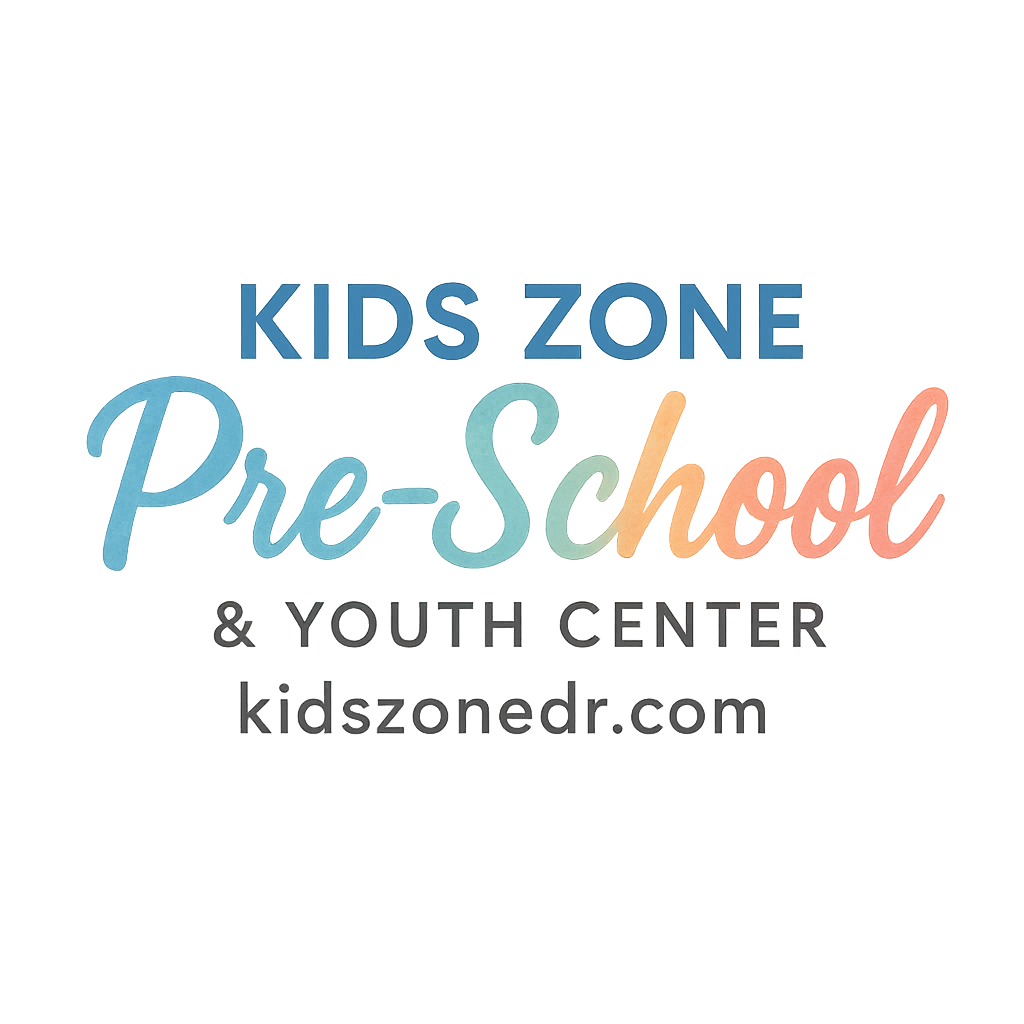Introduction: Why Early Intervention Matters
As parents, one of the most important roles you have is recognizing when your child may be struggling with developmental or behavioral issues. Early intervention can make a significant difference in how a child progresses through their preschool years and beyond. It’s crucial to understand that struggles at this age are common, but when they persist or hinder a child’s daily activities, it might indicate that they need some extra help.
Children develop at their own pace, but some subtle signs could suggest a preschooler is having a harder time than usual. Identifying these signs early can set them up for success by addressing challenges with targeted support.
The Importance of Addressing Developmental Challenges Early
Research consistently shows that early intervention—whether for speech delays, social struggles, or academic difficulties—greatly improves long-term outcomes. Addressing challenges when they first appear allows for tailored learning strategies and support, making the transition into school smoother and more manageable for both the child and parents.
For more information on how to support your child’s learning, you can visit Preschool Learning & Development.
How to Recognize the Early Signs of Struggles in Preschoolers
Children may face developmental or behavioral challenges for a variety of reasons. As a parent, you’re your child’s first advocate, and it’s essential to watch for red flags. So, what should you look out for? Let’s explore the six key signs that may indicate your preschooler needs extra help.
1. Difficulty with Communication Skills
One of the most noticeable challenges children face is with communication. While every child develops at their own pace, significant delays in speaking, understanding, or expressing themselves can cause difficulties in both school and social settings.
Delayed Speech or Limited Vocabulary
If your child is not using age-appropriate words or sentences by their preschool years, they might need extra support. A preschooler should have a vocabulary of about 200-1,000 words by age 3 and should start stringing short sentences together. If they struggle to put sentences together, this could signal a delay in speech development.
For more on language development, check out Child Talk.
Trouble Understanding Instructions
Another red flag is if your preschooler has trouble following simple instructions, like “Please pick up your toy” or “Can you put your shoes on?” If they consistently seem confused or unresponsive to these requests, it may point to an underlying issue with comprehension.
How Parents Can Help
Encourage speech development at home by reading to your child, engaging in conversation, and providing opportunities for them to practice their language skills. If delays continue, consider seeking help from a pediatric speech therapist. You can also read more about this in our Choosing the Right Preschool section, as a good preschool can provide the right resources.
2. Struggles with Social Skills and Friendships
Preschool is an important time for developing social skills. If your child is having difficulty connecting with others, it could be a sign that they need extra support.
Avoiding Group Activities
If your preschooler constantly avoids group play or tends to stay alone even when other children are engaged, they may be experiencing challenges with social interaction. They might feel overwhelmed or unsure of how to approach others.
Difficulty Sharing or Taking Turns
Sharing and taking turns are essential skills for preschoolers, but if your child struggles with these concepts, it can indicate social and emotional difficulties. A preschooler who has trouble waiting their turn or refuses to share may need extra help learning how to interact in social settings.
How Parents Can Support Social Development
Encourage playdates with familiar children and provide a model for social behavior. Praise positive interactions and gently guide them when they struggle. Sometimes, seeking help from a child psychologist can provide additional strategies for overcoming social anxiety. For more tips on boosting your child’s social skills, visit Parental Guidance & Involvement.
3. Challenges with Emotional Regulation
Emotional regulation is crucial for preschoolers, but it’s also one of the most common developmental hurdles. Children this age are learning how to handle their feelings, which can sometimes lead to intense emotions.
Frequent Tantrums and Meltdowns
Tantrums can be a typical part of preschool life, but if they become frequent or uncontrollable, it may be an indication that your child is struggling emotionally. Difficulty managing anger, frustration, or sadness might suggest that they need additional strategies to regulate their emotions.
Difficulty Calming Down
Does your preschooler have a hard time calming themselves down after becoming upset? Emotional resilience doesn’t come easily to all children. Some kids need extra support in learning how to self-soothe.
How Parents Can Foster Emotional Resilience
Modeling calm behavior and teaching coping mechanisms, like deep breathing or counting to ten, can help your child manage their emotions better. If your child’s meltdowns interfere with daily life, it may be beneficial to work with a therapist who can guide you both in handling emotions more effectively. Learn more about emotional support through Daily Routines & Activities.

4. Trouble with Fine and Gross Motor Skills
Motor skills are essential for preschoolers to develop independence. Fine motor skills include tasks like drawing, cutting with scissors, and dressing, while gross motor skills involve activities like running and jumping. Delays in these areas can make it difficult for children to keep up with their peers.
Struggling with Basic Tasks
If your child is still having trouble with simple tasks such as buttoning their shirt, tying their shoes, or holding a pencil, this could indicate a delay in fine motor development. Preschoolers should be able to perform some of these activities by age four.
Coordination Issues
Preschoolers should be able to run, jump, and hop. If your child struggles with basic coordination or seems particularly clumsy compared to their peers, it may indicate that they need additional support in developing motor skills.
Supporting Physical Development
If you notice motor difficulties, encourage activities that promote coordination, like drawing, building with blocks, or playing catch. Occupational therapy can be a valuable resource to help children develop the necessary motor skills for success in preschool. For more information on fostering growth, visit Growth & Milestones.
5. Signs of Learning Delays or Academic Struggles
While academic struggles are more commonly associated with older children, preschool is the perfect time to start laying the foundation for learning. Struggles in this area may show up as difficulty with basic concepts such as shapes, numbers, or colors.
Difficulty Focusing During Lessons
Preschoolers should have a growing ability to focus during short lessons or activities. If your child consistently loses focus or seems uninterested in learning, it may indicate a challenge in this area.
Slow Progress with Early Literacy Skills
If your child struggles to recognize letters or cannot show interest in books, it could signal early signs of a learning delay. These delays may require intervention to catch up with their peers.
What Parents Can Do at Home
Reading together every day, engaging in educational games, and reinforcing learning through play are simple ways to help your child. If academic struggles persist, a learning specialist can offer a more personalized approach. Check out our resources on Preschool Learning & Development for more tips.
6. Increased Anxiety or Unexplained Fear
Anxiety can manifest in many ways in preschool-aged children. It’s normal for children to feel nervous at times, especially when faced with new situations like starting preschool. However, if anxiety becomes more severe, it could point to deeper emotional struggles.
Separation Anxiety
Does your child have extreme difficulty separating from you during drop-offs? This could be a sign of separation anxiety, a common issue for preschoolers. While it’s not unusual for children to experience some distress when leaving a parent, persistent or intense separation anxiety may require extra support.
Excessive Worrying
Some preschoolers may worry excessively about things that others their age might not. If your child often expresses fear about things like monsters, getting sick, or even everyday events, it might be a sign of underlying anxiety.
Strategies to Alleviate Preschooler Anxiety
Building a consistent routine, offering comfort items, and validating their feelings can help. If anxiety persists, it may be helpful to consult a child therapist for strategies to manage their fears. For additional support, visit Health & Safety in Preschool.
When to Seek Professional Help
If you notice any of the signs above and they persist or worsen over time, it’s essential to reach out for professional help. Pediatricians can help evaluate your child’s development, and if needed, they may recommend specialists such as speech therapists, child psychologists, or occupational therapists.
The Role of Pediatricians and Specialists
Pediatricians play a vital role in identifying developmental concerns early. They can help rule out any underlying medical issues and recommend referrals to specialists for further evaluation.
Early Intervention Programs and Therapies
Many children benefit from early intervention programs that focus on specific developmental areas such as speech, social skills, or motor abilities. These programs offer targeted support that can make a significant difference in a child’s development.
Conclusion: Encouraging Growth and Support for Your Preschooler
Recognizing the signs that your preschooler may need extra help is the first step toward ensuring they get the support they need. Early intervention can make a world of difference, so don’t hesitate to reach out for professional assistance if you’re concerned.
By addressing challenges early, you’re setting your child up for a successful and fulfilling future. Always remember, every child develops at their own pace—what’s important is making sure they have the tools and support to thrive.
FAQs
- How can I tell if my child’s development is on track?
It’s essential to compare your child’s progress to age-appropriate developmental milestones. If you notice a significant delay in any area, it’s best to consult a pediatrician. - What should I do if I suspect my child has a developmental delay?
Consult your pediatrician for an evaluation. Early intervention programs and specialists can provide targeted support. - Is it normal for my preschooler to have tantrums?
Tantrums are common at this age but should decrease as your child develops emotional regulation skills. If tantrums are frequent or intense, it may indicate a need for extra support. - How can I help my child with social difficulties?
Encourage playdates, practice social skills at home, and consider seeking support from a child therapist if social struggles persist. - When should I seek professional help for my child?
If your child’s struggles significantly interfere with their daily life or persist beyond a reasonable developmental period, it’s time to seek professional advice. - Are there specific signs that indicate my child may need speech therapy?
If your child has difficulty speaking clearly, using age-appropriate vocabulary, or following simple instructions, it may be time to consult a speech therapist. - What types of therapies are available for preschoolers with developmental delays?
Depending on the delay, therapies may include speech therapy, occupational therapy, or social skills training, tailored to your child’s needs.


